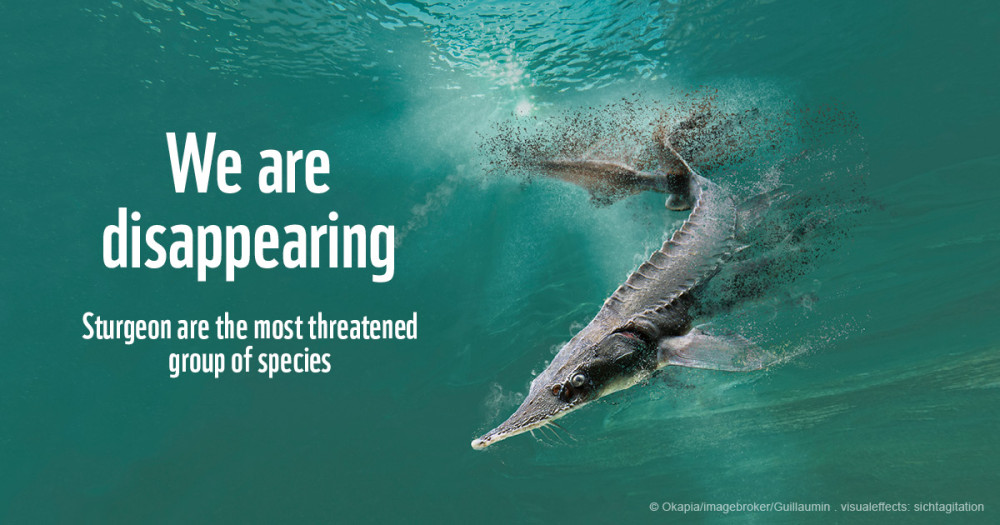European countries must accelerate efforts to tackle poaching of critically endangered species
With all sturgeon species in Europe facing extinction, the European Commission has urged EU Member States to scale up efforts to tackle poaching and trafficking of sturgeon to save the continent’s remaining species.
The call was prompted by a question from a Spanish Member of the European Parliament, who was concerned by the alarming statistics in a recent paper in Current Biology on the Poaching and Illegal Trade in Danube Sturgeon - a paper that was based on groundbreaking EU-LIFE funded WWF reports into poaching and sturgeon crime in the lower section of the river.
In response to the question, Virginijus Sinkevičius, the European Commissioner for Environment, Oceans and Fisheries, issued a clear call for action, highlighting that conserving sturgeon species in the lower Danube is a legal obligation for Member States under the Habitats Directive.
Highlighting the 70 actions incorporated into the Pan-European Action Plan for Sturgeon under the Bern Convention, Sinkevičius also stressed that the revised EU Action Plan against Wildlife Trafficking should strengthen action as well as improve dialogue and cooperation between the Member States, EU enforcement actors and key non-EU countries.
“The Commission is correct to call for accelerated action because countries are still not taking enough steps to tackle poaching - or the other threats to our continent’s remaining sturgeon species,” said Beate Striebel, WWF Lead, Global Sturgeon Initiative.
“We have already lost the Ship sturgeon from EU waters: we will lose more unless countries act now. Especially to end poaching and trafficking of sturgeon, which are the main direct threats to the critically endangered species that are clinging to survival in the Lower Danube,” added Striebel.
Along with increased efforts to tackle poaching and trafficking of sturgeon caviar and meat, Sinkevičius highlighted other indirect threats that need to be addressed, including hydropower development and the modification of river flows.
He pointed to the LIFE-Boat 4 Sturgeon project, which is co-funded by the EU LIFE programme and aims to conserve four Danube sturgeon species. The project’s measures include reintroducing young fish in the Lower Danube and the Black Sea, working with fishery authorities and creating awareness in local fishing villages.
“WWF supports reintroductions because they are key to the long term growth of sturgeon populations in Europe, but they will have little impact unless we can control poaching and illegal trade,” said Striebel.



